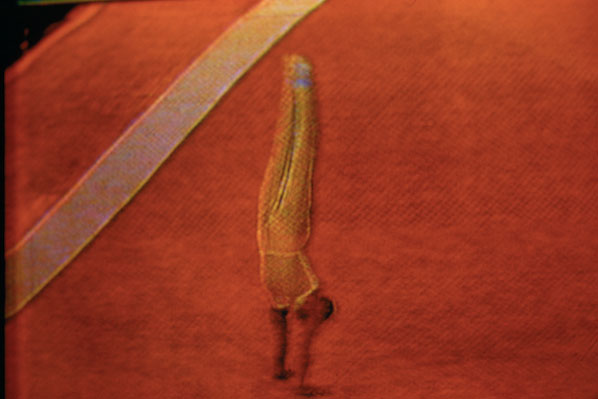To celebrate the Olympics taking place in Paris this year, we are pleased to present an amazing series by Harry Gruyaert of the 1972 Olympics.
Harry Gruyaert drew inspiration from the cathode ray tube televisions that dominated the 1970s. He captured distorted images broadcast directly into living rooms, ranging from popular shows like the British soap “Coronation Street” to the harrowing BBC coverage of the Munich Olympics.
Gruyaert’s abstract and experimental photography serves as both a parody of current affairs photojournalism and a pop-art exploration of everyday life. His works document how millions experienced significant global events through their televisions. When first exhibited in 1974, these pieces sparked controversy for their irreverent take on television culture and their bold challenge to press photography norms.
Reflecting on his work, Gruyaert said, “When I was living in London in the early 70s, there was a crazy television set in my house. By playing around with the antenna and tweaking the controls, I could suddenly obtain fascinating colors. This led me to spend a couple of months following the latest news, from the first Apollo flights to the Munich Olympic Games, as well as American and English TV series and ads. It made me see the world differently and question the growing influence of television.”
“In those days, VCRs didn’t yet exist, and I couldn’t freeze frames or rewind. I was face to face with current events, camera in hand, sometimes very close to the screen to frame things differently. It felt similar to street photography, where a good image is a small miracle that arises when you’re receptive and concentrated. With more advanced technology, the images might not have been as fresh, but merely the result of a conceptual exercise.”
“Discovering Pop Art in New York at the end of the 60s made me realize that our consumer society could be viewed with both insight and humor. I admired artists like Rauschenberg, Lichtenstein, and Nam June Paik. I became a kind of bedroom reporter confronted with the ‘society of spectacle,’ seeing the world’s terrible reality through a screen.”
In 1974, Yves Bourde wrote in Le Monde, “The machine, sabotaged by flamboyant disrespect, is put back in its place, and its message becomes absurd and alarming.” Gruyaert’s work continues to resonate, challenging viewers to reflect on the pervasive impact of television on our perception of reality.

